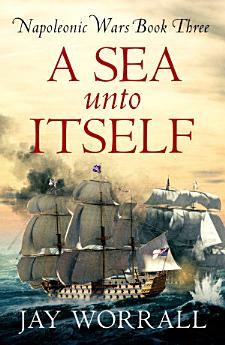A Sea Unto Itself
អំពីសៀវភៅអេឡិចត្រូនិកនេះ
It is 1799. The year before, Napoleon Bonaparte led a large expeditionary force across the Mediterranean to conquer Egypt, where he remains.
Though it seems impossible, fears arise that he is using Egypt as a stepping stone for invasion of Britain's colonies in India, which could deprive England of the great source of its wealth and devastate her ability to continue the war against her revolutionary enemy.
Charles Edgemont, newly appointed Captain of the Frigate Cassandra is ordered on what he initially considers a fool's errand to the foot of the Red Sea. He finds an under-strength crew on the point of mutiny, and an unresolved murder.
Near the entrance to the Red Sea, Charles reports to Admiral Sir John Blankett. Blankett is openly contemptuous of any notion that the French would even consider transiting the sea or make any other attempts to invade the subcontinent.
Admiral Blankett is wrong
The final thrilling novel in Jay Worrall's epic Napoleonic Wars series, perfect for fans of Julian Stockwin, Patrick O'Brian and Hornblower.
Praise for Jay Worrall'A thoroughly enjoyable venture into the venue made famous by C. S. Forester [evoking] the same admiration and sense of adventure [as] the Forester books do' The Roanoake Times
'Well executed demonstrating Worrall's expertise in ship and sea warfare history' Publishers Weekly






